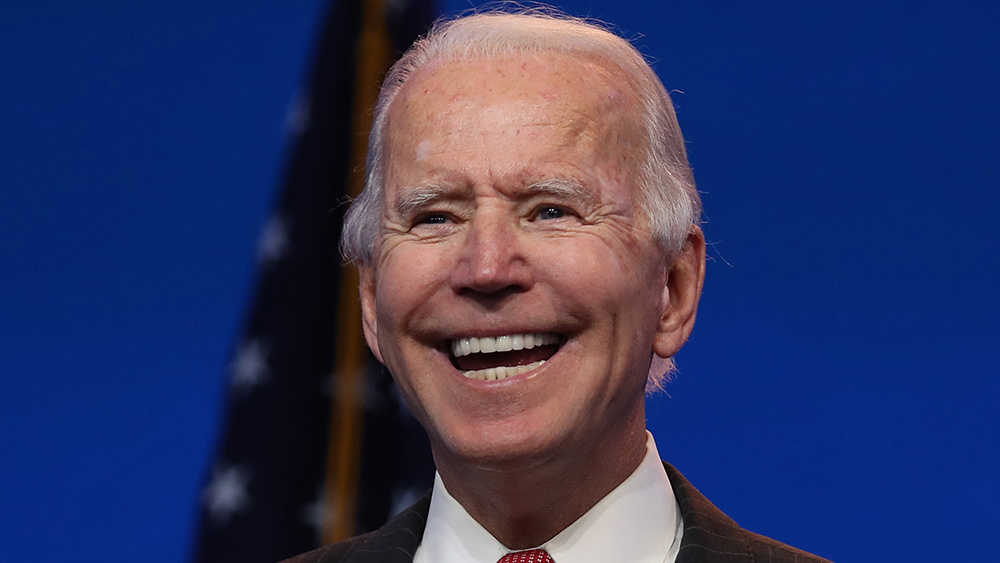
The National Federation of Independent Business (NFIB), the largest small business association in the U.S., is suing President Joe Biden over the new vaccine-or-test mandates for companies with over 100 employees.
The group filed a petition on November 9 with the Fifth Circuit Court of Appeals, demanding that the court pause the Occupational Safety and Health Administration rule.
Karen Harned, executive director of NFIB's Small Business Legal Center, said that the small business economy is fragile and owners continue to manage challenges regarding staffing and supply chain disruptions.
"This mandate only increases those challenges and threatens to cause an enormous financial loss. Ultimately, the mandate restricts the freedom small business owners depend on to run their businesses and is a clear example of administrative overreach," she said.
Biden's mandate saw opposition from state leaders who condemned the plan to be an unlawful case of federal overreach, immediately challenging the requirements in court. (Related: Unions sue Union Pacific over implementation of Biden's vaccine mandate.)
The Biden administration also saw a setback when a federal appeals court in New Orleans temporarily halted the mandate as it posed "grave statutory and constitutional issues."
If the mandate survives the challenges, it will go into effect on January 4, 2022, and will affect over 80 million workers amidst an ongoing labor shortage and massive supply chain delays on top of the rising inflation in the already struggling economy.
Government to rely on whistleblowers to implement mandates
The administration will also have to rely on whistleblowers to identify workplaces that are violating the rule because OSHA does not have enough safety officers to undertake the program.
Acting OSHA Chief Jim Frederick said that the agency will be focusing on job sites where workers require assistance to have a safe and healthy workplace, and they will be relying on complaints to address such issues. However, it is impossible to predict if employees will be willing to take the risk of tattling on their own employers.
Critics have warned that whistleblowers have often faced retaliation from employers, and OSHA has offered little protection when they do.
Workers from different industries have already threatened to quit, retire, change companies or even face the prospect of losing their jobs rather than comply with the new rule mandating vaccines with alternative weekly testing and masking in the workplace.
Among those who are especially affected by the rule are small businesses that are classified to have revenue ranging from $1 to $40 million, and employment of 100 to 1,500 workers. NFIB argued that OSHA needs to use the standard notice-and-comment procedure for the mandate to gather public input instead of using the "emergency" provisions.
Some said that if the matter was truly urgent, then the president would not have to make the tactical move to gain political positioning by waiting until the end of the holidays to implement the rules.
The associations working with NFIB include the Mississippi Trucking Association, Texas Trucking Association, Louisiana Motor Transport Association, American Trucking Associations, National Association of Wholesale Distributors, Food Industry Association, International Warehouse & Logistics Association, National Association of Convenience Stores, International Foodservices Distributors Association and the National Retail Federation (NRF).
Trucking, retail and food industries were particularly worried about how the mandates will affect their business. The NFIB argued that the mandate will cause unrecoverable compliance costs, lost profits and sales. It could also exacerbate the labor shortage hitting small businesses.
NRF President Matthew Shay said that retailers are concerned about implementing requirements during the holiday season. The NRF represents the nation's largest retailers, including Target and Walmart, and have asked for extensions of deadlines until after January.
"We have consistently and repeatedly communicated our concerns about the practical challenges of meeting those arbitrary targets. However, it appears that our only remaining course of action is to petition for judicial relief," Shay said in a statement.
Companies that fail to comply with the mandates will face fines of $13,653 per "serious" violation, and employers who will be found to be "willful" or repeat offenders will be subject to fines up to ten times that amount.
Get more news related to vaccine mandates at Pandemic.news.
Sources include:
Please contact us for more information.



















